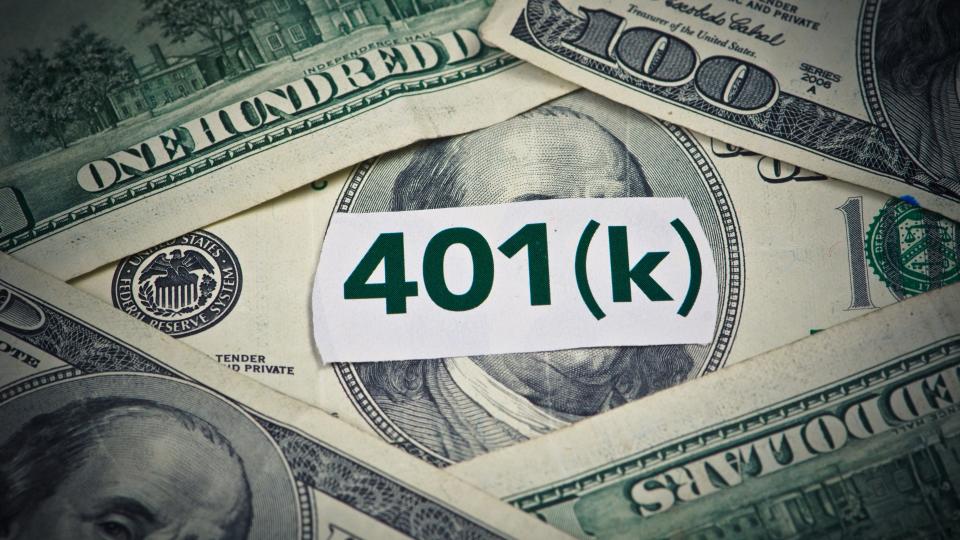Financial Planners: Why You Should Stay In Your 401k in Retirement

Figuring out how to balance and strategize the right kinds of retirement accounts to bring you the best tax benefits and income in retirement can be challenging.
Be Aware: Here’s Exactly How Much Savings You Need To Retire in Your State
Find Out: 5 Unusual Ways To Make Extra Money (That Actually Work)
A lot of financial advisors suggest retirees consider a 401(k) to Roth IRA conversion in retirement to lower taxes, but there are some worthwhile reasons to stay in a 401k, depending on your circumstances.
Financial planners explain eight reasons why you should stay in your 401k in retirement:
Creditor and Bankruptcy Protection
One of the best reasons to stay in a 401(k) in retirement is for bankruptcy and creditor protection, according to Jake Skelhorn, CFP with Spark Wealth Advisors, LLC.
“IRA protection varies by state but can be more vulnerable to lawsuits than 401(k) plans which are fully protected under ERISA (Employee Retirement Income Security Act). If you are a retired business owner or may be a target of lawsuits even after you retire, it may make sense to keep your money in the 401(k),” Skelhorn said.
Consider The Rule of 55
For those retiring before age 59.5, “The rule of 55 says that you can start withdrawing from a 401(k) plan without penalty if you leave that employer during the year you turn age 55 or later,” Skelhorn said. “If you roll over your 401(k) to an IRA, you must wait until 59.5 to avoid a penalty, with some exceptions.”
Outstanding Loans
If you have any outstanding loans against your 401(k) after you retire, you likely need to pay those off prior to rolling over to an IRA or Roth IRA, if you want to avoid the loan defaulting and becoming taxable, Skelhorn said.
“Depending on your plan’s rules, you can pay it off in full or continue the payment schedule by using a bank account or sending checks to the plan’s administrator,” he said.
If Your 401(k) Offers Annuities
Some 401(k) plans offer annuity options after retirement, where you can use your balance to purchase a stream of income for the rest of your life, or your and and a spouse’s life expectancy, Skelhorn explained.
Discover More: 44 Best Small Towns To Retire in America
“If the monthly payment from this option is more than enough to meet your retirement needs, rolling over to an IRA may not be necessary. This option shouldn’t be taken lightly though, since once this decision is made, it’s generally irreversible without significant surrender charges.”
Lower Fees
Another reason some people choose to leave their 401(k) alone and not “roll” into an IRA after official retirement is due to the low fees of the account, according to John Jones, chartered financial consultant, IRS enrolled agent and investment advisor at Heritage Financial.
“However, it is important to be educated that fees are only a problem in the absence of value, and one should question what true value or support one has a 401(k) provider?” Jones said.
If You Have Multiple 401(k)s
Another reason one may prefer to remain at one’s 401(k) from a prior employer is the borrowing provisions that the 401(k) may provide that aren’t usually available with an IRA,.
“Additionally, for those who change employers frequently, if there are various 401(k) plans remaining from the prior employers it is very easy for the account to lack the proper supervision necessary to a successful retirement,” Jones said.
Additional Benefits
For some retirees, sticking with a 401(k) offers benefits such as access to institutional investment options with lower fees, creditor protection, and the ability to delay required minimum distributions (RMDs) if still working at age 72, according to Michael Hills, a certified fund specialist (CFS) with Apex Wealth.
Preserving Tax-Deferred Growth
Additionally, individuals in higher tax brackets or anticipating a lower tax rate in retirement may find that maintaining a traditional 401(k) preserves tax-deferred growth and provides greater flexibility for managing tax liabilities, Hills said.
“Ultimately, the suitability of a Roth IRA conversion versus retaining a 401(k) depends on individual circumstances, including tax considerations, investment preferences, and long-term financial goals.”
Decisions regarding your retirement accounts should always be made with the help of a financial professional whenever possible. Otherwise, be sure you understand not only where your retirement income will be coming from, but the tax consequences of the options you choose.
More From GOBankingRates
This article originally appeared on GOBankingRates.com: Financial Planners: Why You Should Stay In Your 401k in Retirement